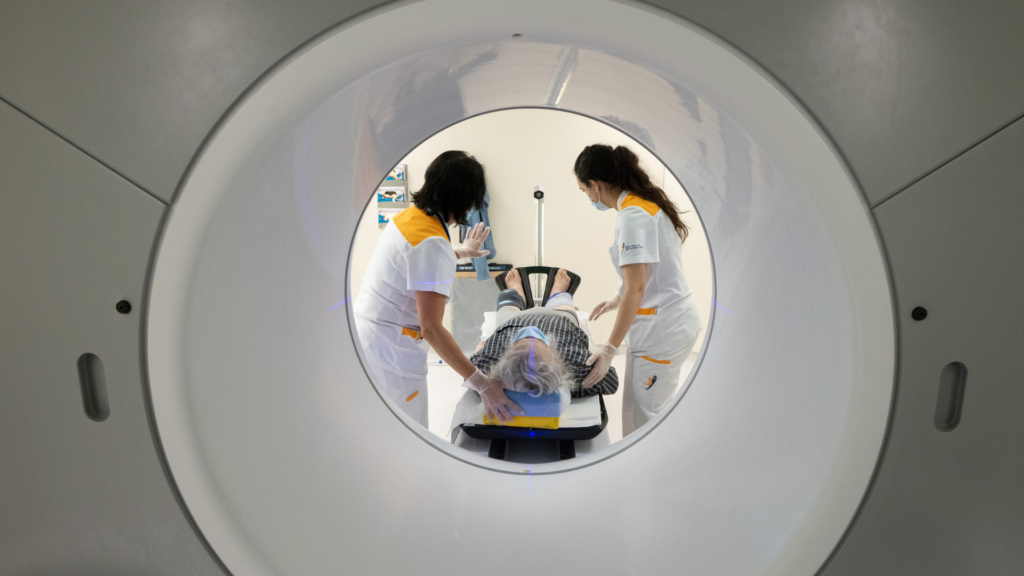For the first time, scientific research has proven that targeted radiotherapy not only stabilises the disease but also extends the survival of patients with prostate cancer which has spread.
The research was conducted by the Cancer Research Institute Ghent, in collaboration with American scientists.
In some cases, when prostate cancer spreads, it does so to only a few other areas in the body. This is known as oligometastatic prostate cancer, which is difficult to treat.
Opinions vary on the best treatment approach for these patients. Most specialists prefer hormone therapy or monitoring the disease’s progression.
Ten years ago, researchers, supported by the NGO 'Kom Op Tegen Kanker', initiated the 'WOLVERINE study' with positive results. "A new treatment with minimal side effects that extends survival is quite unique," says radiation oncologist Piet Ost.
The new findings show that targeted radiation can not only control the disease longer but also prevent the cancer from becoming resistant to hormone therapy. This allows for the delay of more intensive treatments, such as chemotherapy.
The study builds on previous Belgian research, including work by Ost, and confirms that a strategy involving targeted radiation could fundamentally change the treatment of prostate cancer which has spread in patients.
Patients are advised to discuss their treatment options with their doctor.
Radiotherapy aims to destroy prostate cancer cells without causing damage to healthy cells. It is intended for patients that have been diagnosed with localised and locally advanced prostate cancer where the cancer cells have spread to the area just outside the prostate.
In the past, the number of treatments were around 20 or even more during several weeks but nowadays hospitals can offer treatment consisting of 5 sessions over 2,5 weeks. Before the treatment, the patient undergoes a “simulation”, where a computer works out the exact targeting of the cancer cells and the precis radiation dose.
The treatment itself is painless and the patient can continue his daily routine directly afterwards. The radiotherapy specialist will inform the patient about possible side effects. They are considered to be less than in alternative treatments and will in most cases disappear after some time. The impact of the treatment will be assessed after 2 – 2,5 months based on a simple PSA test.
Update: A previous version of the article has been updated to include information about the most effective form of radiotherapy available in Brussels.

